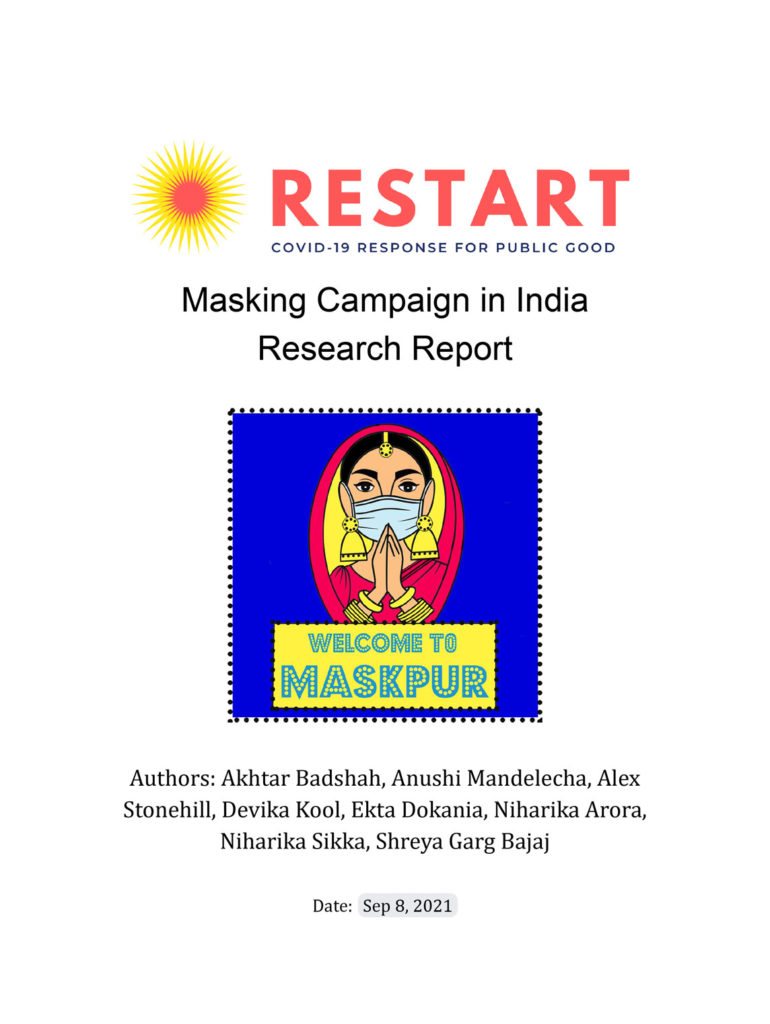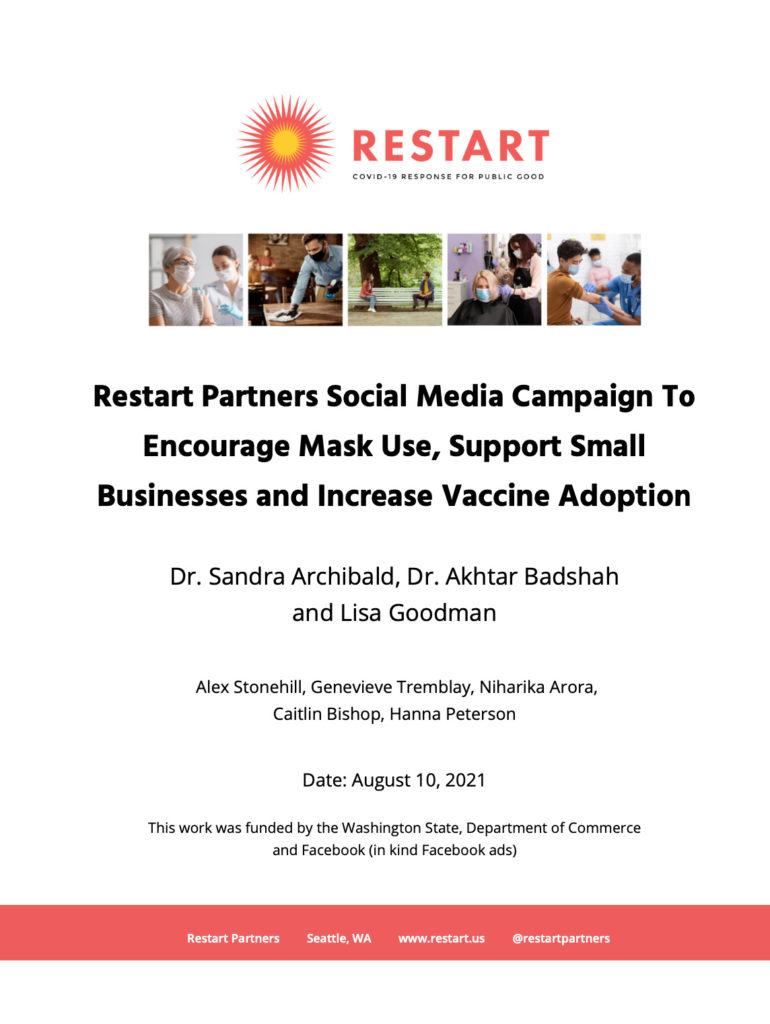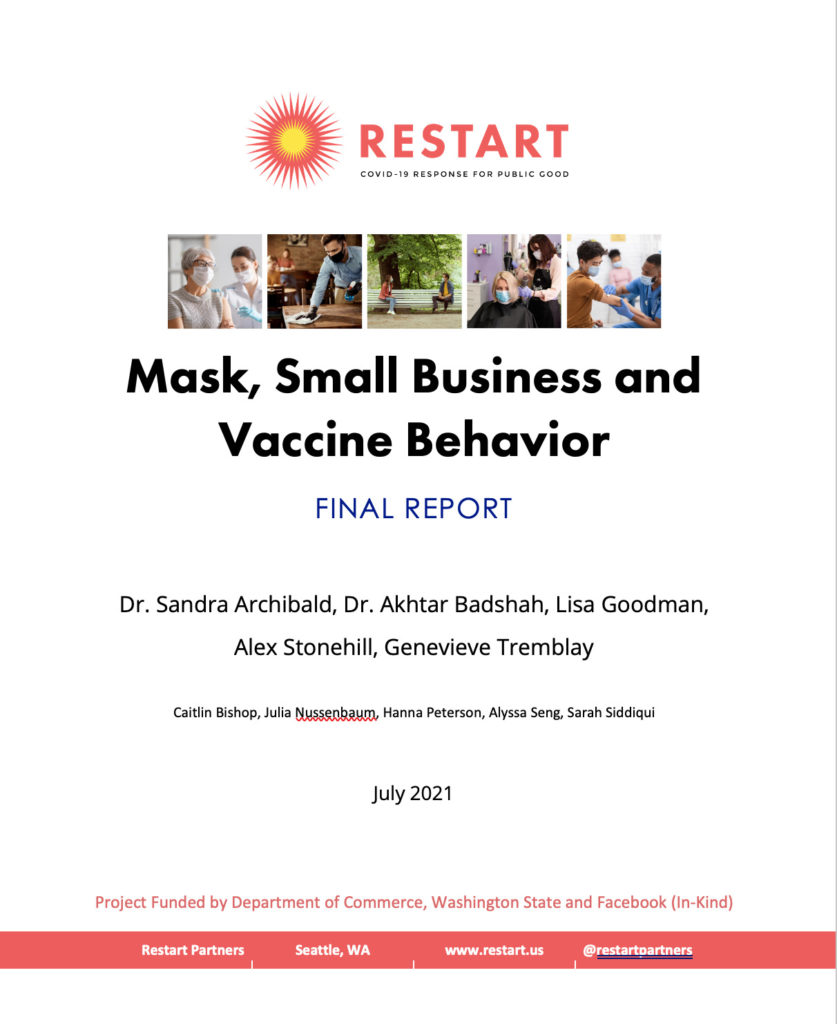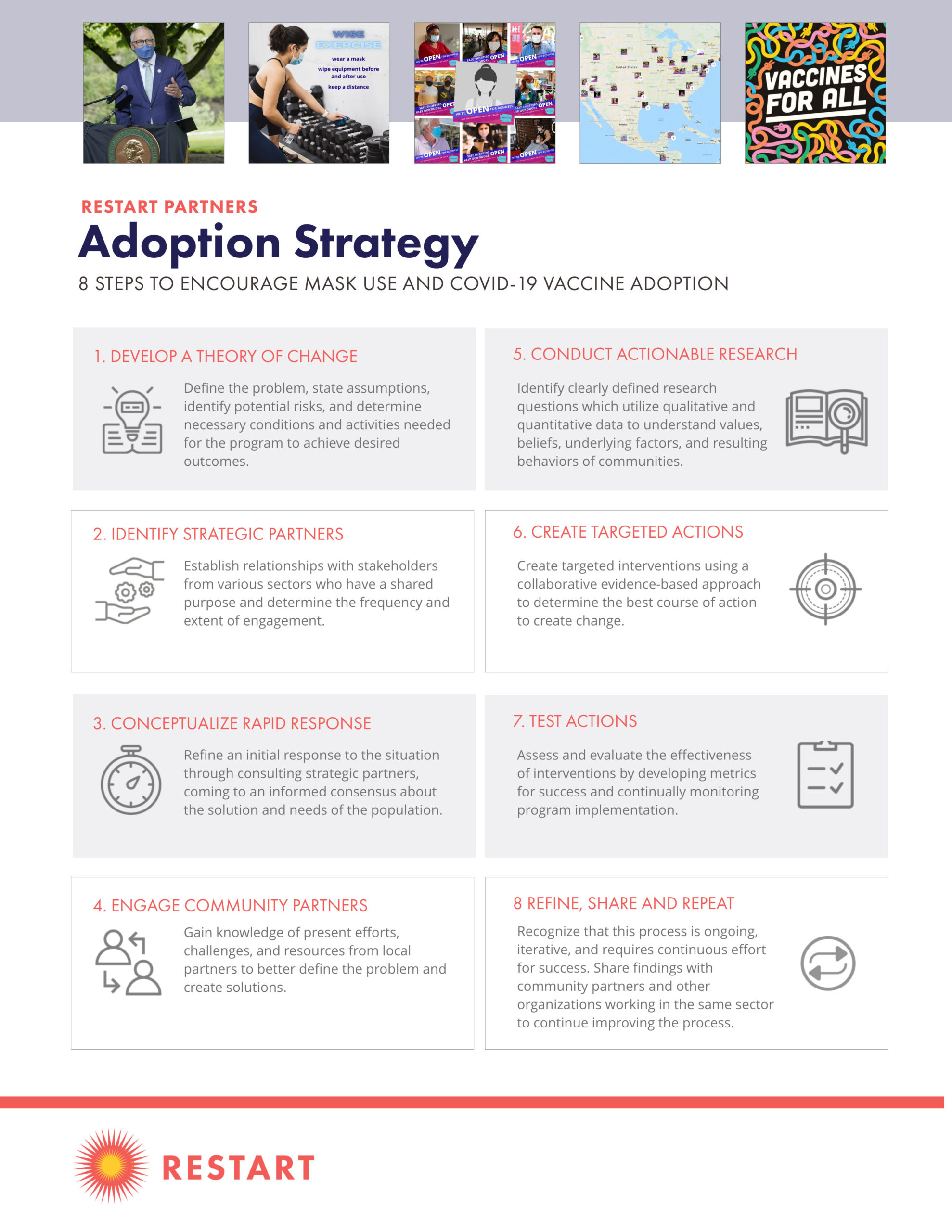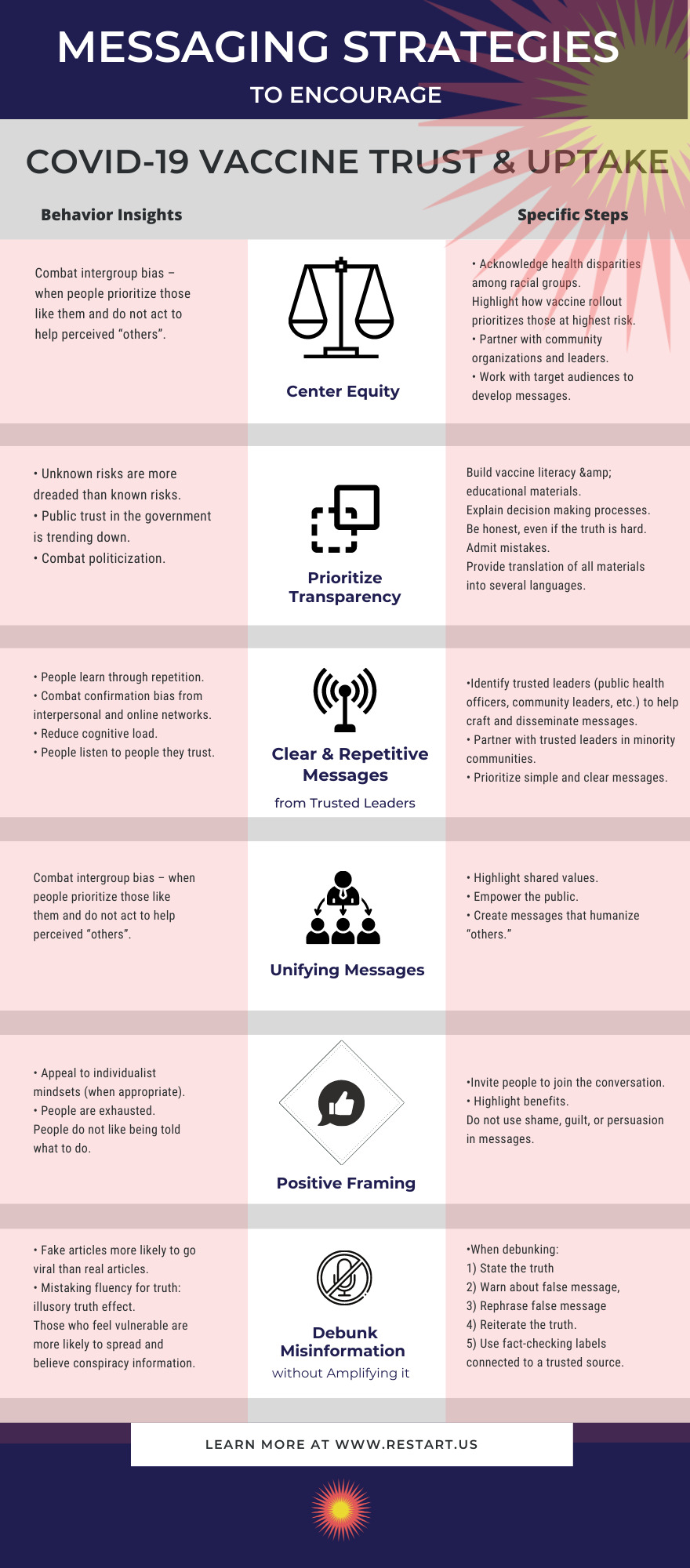Research and Reports
The severity of the rapidly-evolving COVID-19 pandemic warrants a creative, novel, and sustained approach to encourage public health protocol, keeping people safe and the economy open. With support from the Washington State Department of Commerce, Facebook, and Upswell partners, Restart partners was able to undertake three major social media campaigns to improve public health outcomes and more safely reopen the economy: Mask Adoption, Small Businesses, and Vaccine Adoption.
Our campaigns and stakeholder analyses demonstrate the power that social media holds to effect positive social change and influence public health outcomes. This is significant as social media is concurrently being a vehicle for misinformation, threatening public health and costing lives. The primary objective of our research studies was to increase mask wearing, vaccine uptake, and awareness of safe business patronage through employing social media marketing techniques.
In these reports, we demonstrate how social media marketing techniques, historically used to sell products, may be effective in encouraging people to adopt certain behaviors during the COVID-19 pandemic that lead to better physical and mental health, and eventually to wide-scale social change and improved public health. Organizations may leverage the lessons learned from these studies to create campaigns to optimally achieve organizational goals.
Masking Campaign in India Research Report: FINAL REPORT
Social Media Campaign To Encourage Mask Use, Support Small Businesses and Increase Vaccine Adoption: FINAL REPORT
Authors – Dr. Sandra Archibald, Dr. Akhtar Badshah, Lisa Goodman with Alex Stonehill, Genevieve Tremblay, Niharika Arora, Caitlin Bishop, Hanna Peterson
Mask, Small Business and Vaccine Behavior: FINAL REPORT
Authors – Dr. Sandra Archibald, Dr. Akhtar Badshah, Lisa Goodman with Alex Stonehill, Genevieve Tremblay, Caitlin Bishop, Julia Nussenbaum, Hanna Peterson, Alyssa Seng, Sarah Siddique
Stakeholder Analysis: Washington State COVID-19 Vaccine Distribution
As vaccine scarcity becomes less of a challenge in the distribution process, hesitancy and access emerge as the primary barriers to equitable vaccination efforts. This analysis uses national and local data regarding vaccine hesitancy to identify key geographies within Washington State that risk facing low vaccine uptake and recommends leveraging key partnerships to close these gaps.
Memo 1: COVID-19 Vaccine Communication Strategies for Wary and Underserved Groups
Memo 2: Incentivization of COVID-19 Vaccines in WA Workplaces
Memo 3: Vaccine Passports: Risks and Benefits of Requiring Proof of Vaccination
Adoption Strategy Infographic:
8 Steps to Encourage Mask Use and COVID-19 Vaccine adoption
We were informed by theory and evidence to targeted message development basing our work on metrics from available primary and secondary research, academic literature, input from communication experts, the results of a national survey we designed and implemented, as well as informal interviews with community and business leaders, and policymakers at the state and local levels.
Our team developed an 8-step methodology for encouraging mask use, which can be used by other stakeholders and extended to encompass a larger array of public health interventions.
MESSAGING STRATEGIES: To ENCOURAgE COVID-19 VACCINE TRUST & Uptake
Most “healthy behaviors” that can stem viral spread (e.g., mask adoption, social distancing, sanitizing, limiting social distancing) are new to people living in the United States. Getting people to adopt these behaviors requires enacting new public health policies and changing public perceptions and social norms about these behaviors. Providing people with up-to-date science and policy information is very important, but changing behavior also involves building trust, listening to the unique perspectives of various communities, and creating messaging that is relevant and accessible to those communities.
We initially focused on changing behavioral norms around mask use, social distancing, and avoiding social gatherings. We believe that this strategy can be used in a wide range of other contexts.
Partners
-
Facebook
University of Washington Evans School of Public Policy & Governance - University of Washington Communication Leadership
-
Upswell
WA State Department of Health
WA State Department of Commerce

